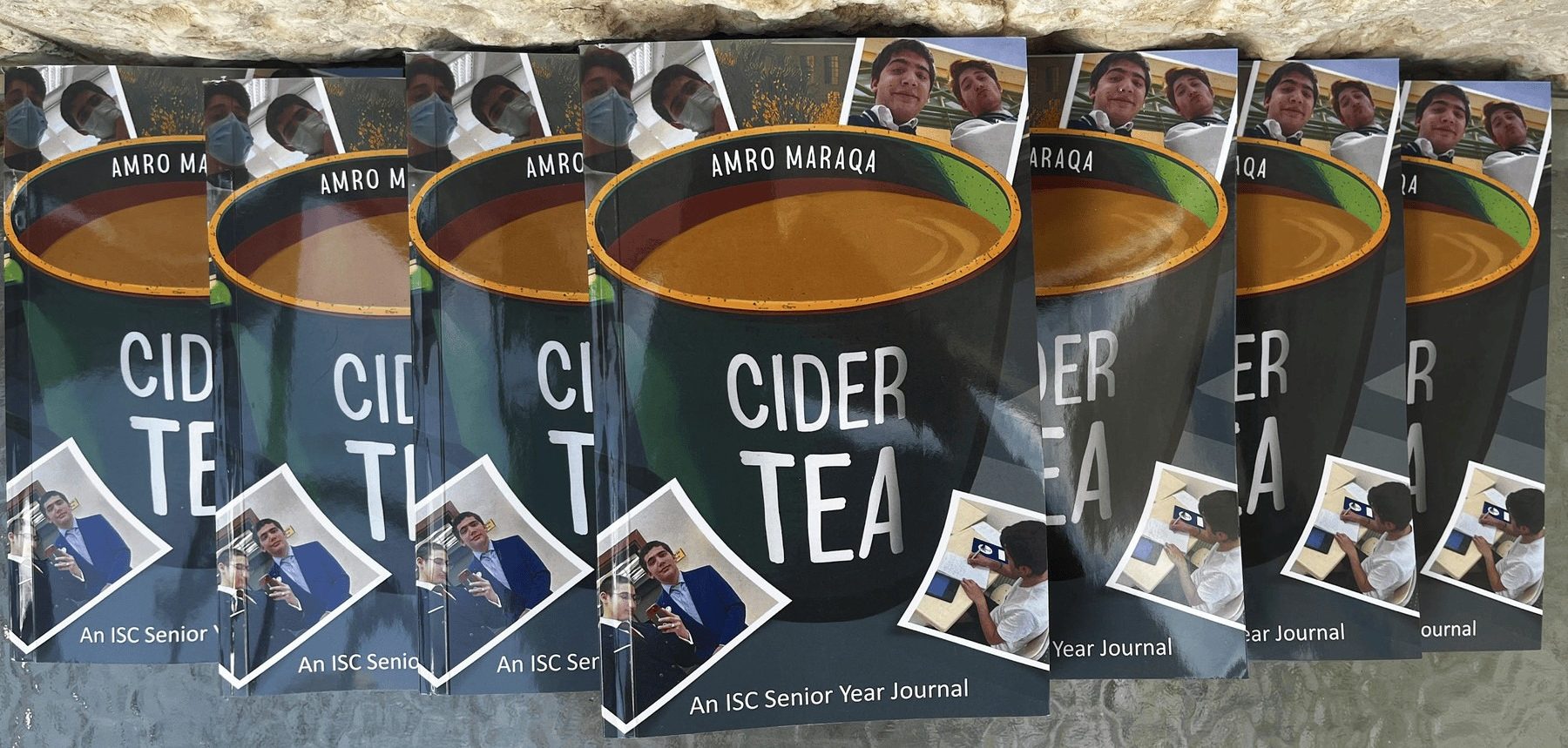From a Senior Year journal to my first book: The journey of Cider Tea
Many people journal, but how many of those journals become books?
In my Senior Year of high school back in Erbil, Iraq, I began journaling my Senior Year, after my friend suggested it. It was meant to be a short-lived habit, something to stop once exams approached; however, I carried on journaling after noticing the benefits and how eventful my Senior Year was, compared to my expectations.
While writing my journal, another friend, Yasna, told me: “Reading this feels like a novel. Why not publish it and call it Cider Tea?” I dismissed the idea at the time because my journal didn’t have a narrative.
As my Senior Year commenced, I began to realise that my journal had started to develop a narrative. The conflict occurred on day 38, and the climax followed three days later. From that point, it became its own story. After I graduated from high school, I realised the journal included private information about myself and my colleagues. So, I decided to call off publishing Cider Tea.
18 months later…
I retracted my decision and began to rewrite the journal in a novel style by integrating more dialogue and figurative language. It was smooth sailing until I realised that I required consent from every character mentioned in the journal. I had to cut some names out and alter others due to privacy concerns; however, most people agreed to be in the book, which was a relief.
One call after the other, I asked the same question, and was glad that most people not only agreed, but also supported my journey in writing Cider Tea, especially my English teachers.
After I tackled one challenge, another one emerged: Some days were just too boring for the readers. A Senior Year is bound to have a few boring days now and then. That begged the question of “Should I remove the boring days?” After reflecting on the matter, I decided to remove days that didn’t entertain the writer or the reader based on a criterion.
As I was starting to get confident about the quality of the book, I asked my former flatmate, who is a graduate in English Literature, to give me an honest analysis of the book. After receiving feedback on the book, I realised that there was still plenty of work to be done.
My former flatmate pointed out various mistakes, such as my bad habit of overusing similes and how some of my sentences span an entire paragraph. After countless hours of editing, I was finally ready to see my work in print. I printed my book in Amman, Jordan, and it felt like all my hard work finally paid off.
I am officially an author, an author of a nonfiction journal-style novel. The book covers the Senior Year, with themes of identity, memory, and relationship dynamics. The book also illustrates a mysterious main character that influences the writer’s Senior Year tremendously, and the plot regarding that character develops over each day of the journal.
Writing Cider Tea was far more difficult than I anticipated, whether it was the 250-page target or having to ask everyone for their permission to be in the book. It was a long and challenging process. I’m not a great writer, but I’m glad my Senior Year gave me the opportunity to write my first-ever book.

Comments